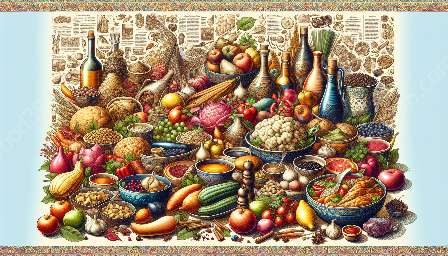Refrigeration has been a game-changer in the culinary world, significantly altering cooking practices and food culture. Its advent has not only transformed the way we store and preserve food but has also influenced the evolution of cooking techniques and tools. To understand the profound impact of refrigeration, we must examine its historical development, its effects on cooking practices, and its role in shaping food culture.
The Evolution of Refrigeration
Refrigeration dates back to ancient times when natural ice and snow were used to preserve food. However, the true revolution came with the invention of mechanical refrigeration in the 19th century. This technological breakthrough led to the widespread adoption of household refrigerators and freezers, fundamentally changing the way we interact with food.
Impact on Cooking Practices and Techniques
Refrigeration has had a profound influence on cooking practices. Prior to its advent, food preservation relied heavily on techniques such as drying, salting, and smoking, limiting the availability of fresh ingredients throughout the year. With refrigeration, cooks gained access to a wider variety of fresh produce, meat, and dairy products regardless of the season, allowing for more diverse and creative culinary creations.
Additionally, refrigeration facilitated the development of new cooking techniques. The ability to maintain precise temperatures in refrigerated environments led to advancements in food preservation, fermentation, and sous-vide cooking. This has transformed the way ingredients are prepared and cooked, giving rise to innovative dishes and flavor profiles.
Impact on Cooking Tools
The introduction of refrigeration also spurred the evolution of cooking tools. Refrigerators and freezers have become essential appliances in modern kitchens, enabling home cooks and professional chefs to store ingredients safely for extended periods. The availability of refrigeration has influenced the design of kitchen equipment, leading to the development of specialized storage containers, vacuum sealers, and temperature-controlled appliances that optimize food preservation and cooking processes.
Refrigeration's Influence on Food Culture
Refrigeration has not only transformed cooking practices and techniques but has also shaped food culture in profound ways. The ability to preserve perishable ingredients has expanded the culinary repertoire, allowing for the incorporation of diverse flavors and ingredients from around the world. This has resulted in a global fusion of cuisines, as refrigeration enables the transportation and storage of exotic produce and specialty goods.
Origin and Evolution of Food Culture
Refrigeration has played a pivotal role in the evolution of food culture by democratizing access to a wide array of ingredients and culinary traditions. As refrigeration became more accessible, it paved the way for globalization in the food industry, as well as the emergence of refrigerated supply chains that enable the distribution of food on a global scale.
Concluding Thoughts
The advent of refrigeration has had a profound and lasting impact on cooking practices, cooking techniques, and food culture. Its influence can be seen in the way we approach food preparation, storage, and culinary innovation. By understanding the evolution of refrigeration and its impact, we gain insight into the dynamic relationship between technology, food, and culture.


